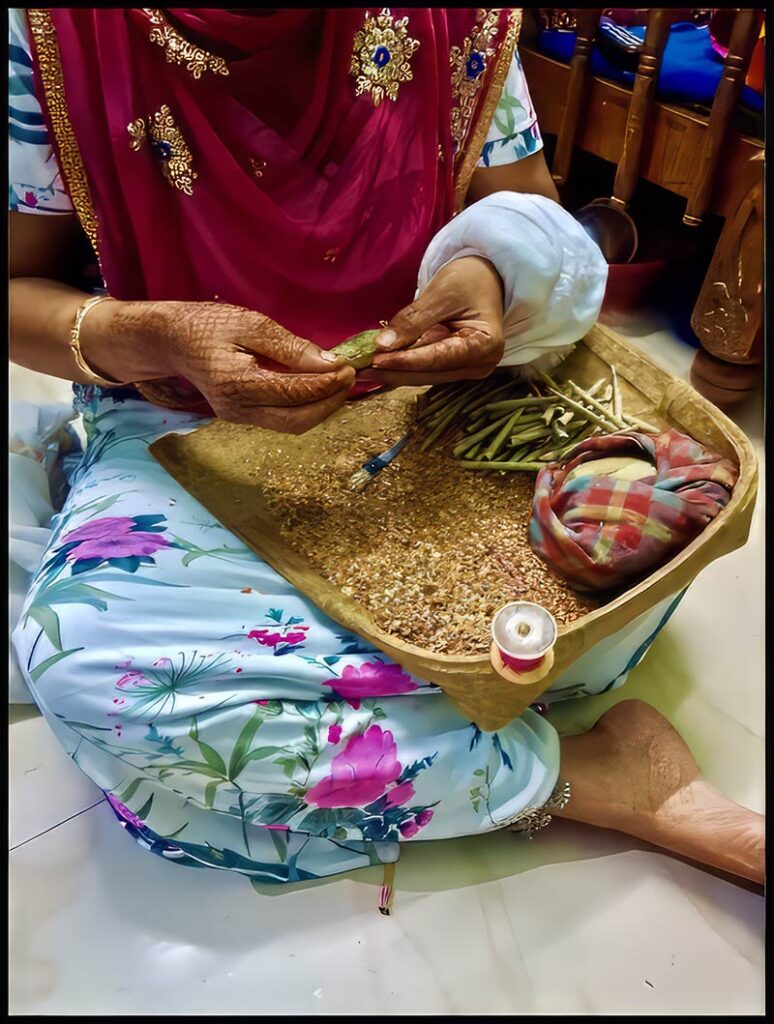By Priyanka Ravi
Beedis are hand-rolled smoking tobacco manufactured in India. The process of making beedi includes collecting tendu leaves and tobacco, rolling them into beedis, then sorting, labelling, wrapping, and packing of beedis. Majority of the employees who are responsible for rolling beedis are women. They are paid Rs. 250 to 300 ($3.00 to $3.60 USD) to roll a thousand beedis. In this picture, a beedi roller has wrist pain due to the constant rolling of tendu leaves with tobacco fillers. These workers experience chronic pain in the wrist, upper and lower back, shoulder, and leg as they sit in the same position for long hours. A beedi worker says,
“I use a painkiller or analgesic spray for my pain and tie a cloth after applying the spray to keep my hand warm. That provides some support to my wrist while working.”
These workers practice self-medication or use home remedies to control chronic pain, and some of them continue to work in pain. There is no definite work time, so some of the workers start to work from 1:00 pm to 1:00 am or until they finish 1000 beedis. There is a need for safe health work policies to improve the life of these workers.

Credit: Husna Banu, Beedi workers and community member
Beedis are hand-rolled cigarettes and most used smoking form of tobacco in India. Various health effects of beedi have been reported; however, there is scant evidence on the potential health effects of tobacco on beedi workers. The aim of this project was to explore the experiences and challenges faced by the women beedi workers handling unburnt tobacco using Photovoice, a community-based participatory method. We recruited 20 women involved in beedi rolling for at least a year. One-day training was conducted on principles and ethics of photography, photo consent and safety, field practice using digital cameras, and group discussion and reflection about the photovoice. Participants were then asked to take pictures of what best represents occupational health challenges in their workplace. Photos were taken for four weeks, and after every seven days, the participants discussed the pictures with the research team. The major themes were health problems, alternate employment, occupational constraints, household responsibilities, interpersonal relations, children's health, social inequality, and economic burden. Empowerment measures include thinking about the problem, leadership, facilitation, photography, and presentation skills. Photovoice exhibitions were arranged within the community for community leaders, community members, and policymakers. The project findings provide a better understanding of health and social challenges. Written informed consent and photo release consent have been obtained from the participants.


©2024. Made with (❤︎) in Yachayninchik